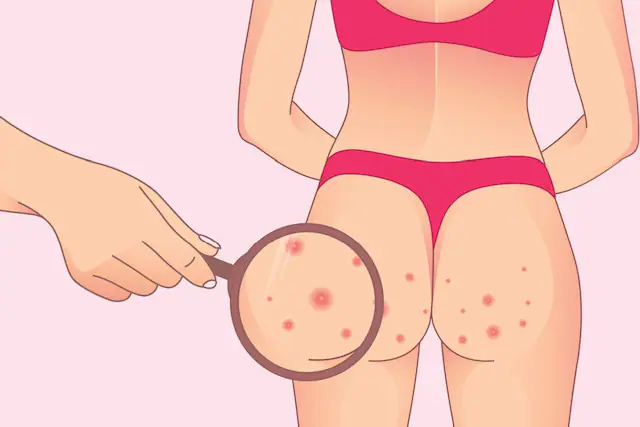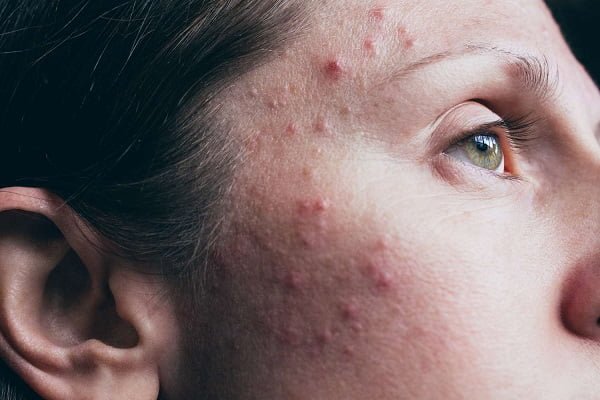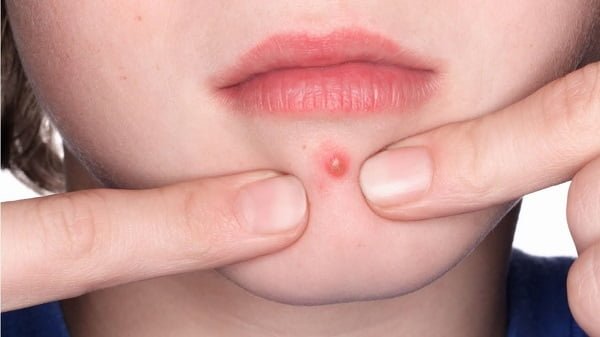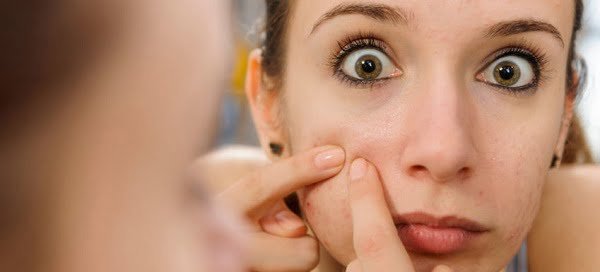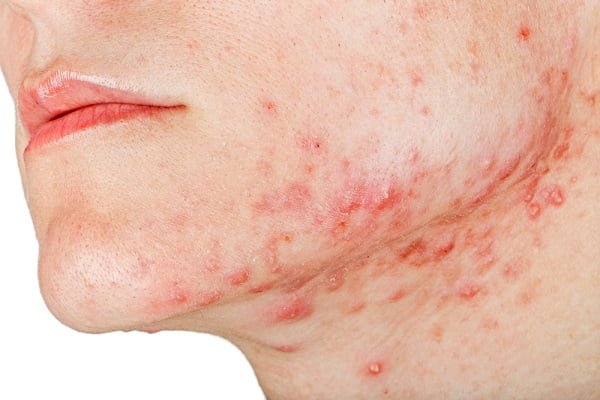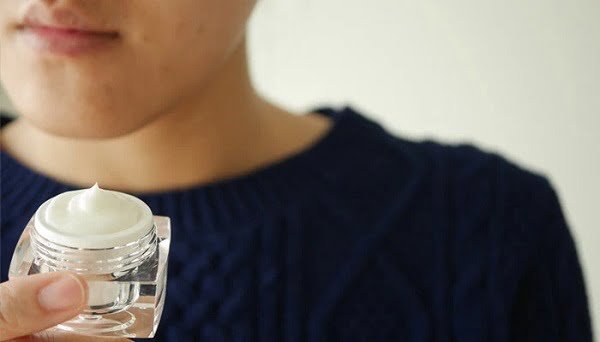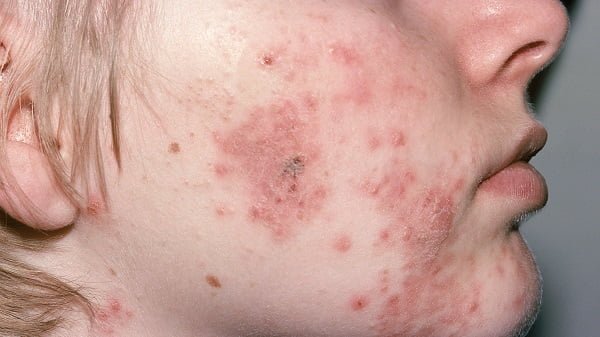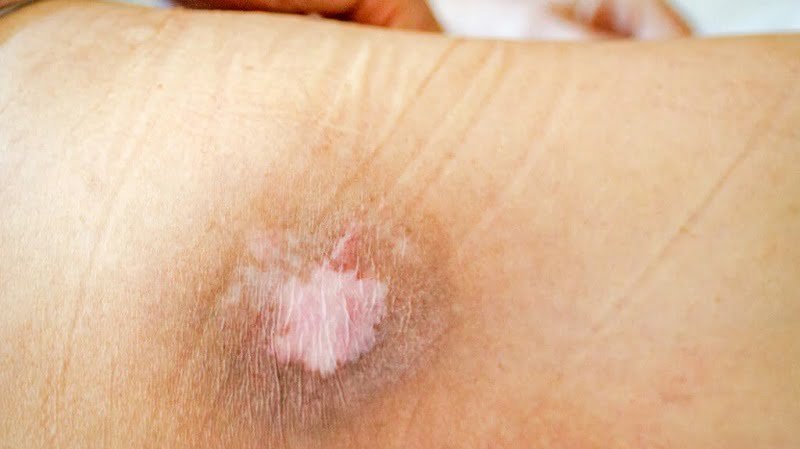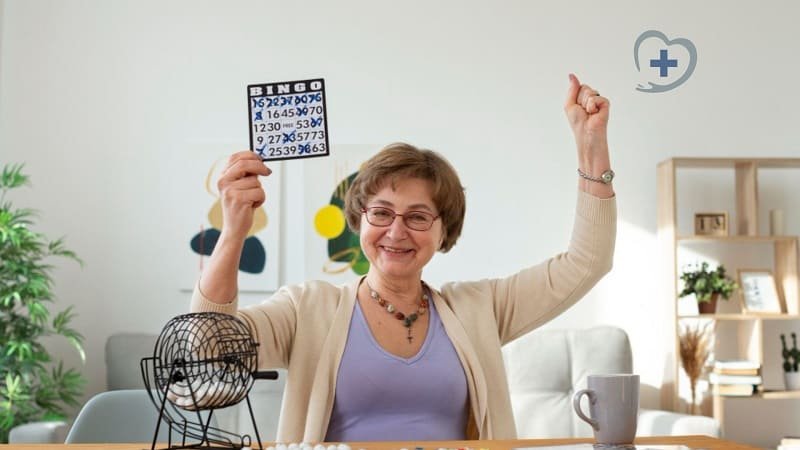Introduction
While acne is commonly associated with the face, it can also develop on other parts of the body, including the buttocks. Acne on the buttocks can be uncomfortable and embarrassing, but there are several home remedies that can help alleviate symptoms and promote healing. In this blog, we’ll explore effective home remedies for treating acne on the buttocks, allowing you to achieve smoother, clearer skin.
Reasons for Buttocks Acne
Friction: Friction from tight clothing or activities such as cycling or prolonged sitting can irritate the skin on the buttocks, leading to inflammation and acne breakouts.
Excess Sweat: Sweat can accumulate on the buttocks, especially during hot and humid weather or intense physical activity. When sweat mixes with bacteria and dead skin cells, it can clog pores and contribute to acne formation.
Poor Hygiene: Inadequate cleansing of the buttocks can allow sweat, bacteria, and dead skin cells to build up on the skin’s surface, leading to clogged pores and acne breakouts.
Folliculitis: Folliculitis is a condition characterized by inflammation of the hair follicles, often caused by bacterial or fungal infections. When bacteria such as Propionibacterium acnes infect the hair follicles on the buttocks, it can result in folliculitis and acne-like bumps.
Hormonal Factors: Hormonal fluctuations, such as those experienced during puberty, menstruation, pregnancy, or menopause, can stimulate the sebaceous glands to produce more oil. Excess oil production can lead to clogged pores and acne breakouts on the buttocks.
Poor Diet: Consuming a diet high in processed foods, sugary snacks, and dairy products may exacerbate inflammation and contribute to acne formation on the buttocks.
Certain Medications: Some medications, such as steroids or hormonal treatments, can disrupt the balance of hormones in the body and increase the risk of acne breakouts on the buttocks.
Skin Conditions: Certain skin conditions, such as psoriasis or eczema, can affect the buttocks and predispose individuals to acne breakouts in the affected area.
Home Remedies for Buttock Acne
Keep the Area Clean: One of the most important steps in treating acne on the buttocks is to keep the area clean. Use a gentle cleanser to wash the buttocks daily, especially after sweating or exercising. Avoid harsh soaps or scrubbing too vigorously, as this can irritate the skin and worsen acne.
Use Warm Compresses: Applying warm compresses to the affected area can help reduce inflammation and promote healing. Simply soak a clean cloth in warm water, wring out excess moisture, and apply it to the buttocks for 10-15 minutes. Repeat this process several times a day to soothe acne flare-ups.
Exfoliate Regularly: Exfoliating the skin on the buttocks can help remove dead skin cells, unclog pores, and prevent acne breakouts. Choose a gentle exfoliating scrub or body wash containing salicylic acid or glycolic acid, and use it 2-3 times a week to keep the skin smooth and blemish-free.
Try Tea Tree Oil: Tea tree oil has natural antibacterial and anti-inflammatory properties, making it an effective remedy for treating acne on the buttocks. Dilute tea tree oil with a carrier oil such as coconut oil or jojoba oil, and apply it directly to the affected area using a cotton swab. Leave it on for 10-15 minutes before rinsing off with water.
Use Topical Treatments: Over-the-counter topical treatments containing benzoyl peroxide or salicylic acid can help reduce acne on the buttocks by unclogging pores and killing acne-causing bacteria. Apply a thin layer of the treatment to the affected area once or twice daily, following the product instructions carefully.
Wear Breathable Clothing: Tight-fitting clothing made of synthetic fabrics can trap sweat and bacteria against the skin, leading to acne breakouts on the buttocks. Opt for loose-fitting, breathable clothing made of natural fibers such as cotton to allow the skin to breathe and prevent moisture buildup.
Maintain a Healthy Diet: Eating a balanced diet rich in fruits, vegetables, whole grains, and lean proteins can support overall skin health and reduce inflammation. Avoiding processed foods, sugary snacks, and excessive dairy consumption may also help prevent acne flare-ups on the buttocks.
Stay Hydrated: Drinking an adequate amount of water each day helps flush toxins from the body and keep the skin hydrated. Aim to drink at least 8 glasses of water daily to maintain optimal skin health and reduce the risk of acne on the buttocks.
When to Seek Medical Attention for Acne on the Buttocks
Severe Pain or Discomfort: If the acne lesions on your buttocks are causing severe pain or discomfort, it’s essential to seek medical attention. Painful cystic acne or large, inflamed nodules may require professional treatment to alleviate discomfort and prevent complications.
Persistent or Worsening Acne: If the acne on your buttocks persists or worsens despite home remedies or over-the-counter treatments, it may be time to consult a dermatologist. Persistent acne could indicate an underlying skin condition that requires specialized care.
Presence of Abscesses or Boils: If you notice abscesses, boils, or large, painful bumps on your buttocks, it’s crucial to seek medical attention promptly. These deep-seated infections may require drainage and antibiotic therapy to prevent further complications.
Signs of Infection: Watch out for signs of infection such as increased redness, warmth, swelling, or pus drainage from the acne lesions. If you suspect an infection, seek medical attention promptly to prevent the spread of bacteria and potential systemic complications.
Scarring or Hyperpigmentation: Severe or recurrent acne on the buttocks can leave behind scars or dark spots known as post-inflammatory hyperpigmentation. If you’re concerned about scarring or skin discoloration, a dermatologist can recommend treatments to minimize their appearance.
Underlying Skin Conditions: Acne on the buttocks may be a symptom of an underlying skin condition such as folliculitis, hidradenitis suppurativa, or psoriasis. If you have a history of these conditions or suspect their presence, consult a dermatologist for proper diagnosis and management.
Systemic Symptoms: If you experience systemic symptoms such as fever, chills, fatigue, or swollen lymph nodes along with buttock acne, it could indicate a more serious infection or inflammatory condition. Seek medical attention promptly for evaluation and appropriate treatment.
Failure of Home Remedies: If home remedies or over-the-counter treatments fail to improve your buttock acne or if you experience adverse reactions to these treatments, consult a healthcare professional for personalized advice and prescription medications.
common medications used to manage buttock acne:
Topical Retinoids: Topical retinoids, such as tretinoin, adapalene, and tazarotene, are derived from vitamin A and work by unclogging pores, reducing inflammation, and promoting cell turnover. They are commonly prescribed for mild to moderate acne on the buttocks and can help prevent new breakouts.
Topical Antibiotics: Topical antibiotics, such as clindamycin and erythromycin, help kill acne-causing bacteria and reduce inflammation. They are often used in combination with other acne medications to treat inflammatory acne lesions on the buttocks.
Benzoyl Peroxide: Benzoyl peroxide is a topical medication that works by killing acne-causing bacteria, reducing inflammation, and unclogging pores. It is available over-the-counter and in prescription-strength formulations and is commonly used to treat mild to moderate acne on the buttocks.
Oral Antibiotics: Oral antibiotics, such as doxycycline, minocycline, and tetracycline, are prescribed for moderate to severe acne on the buttocks that has not responded to topical treatments. They work by reducing inflammation and killing acne-causing bacteria.
Oral Contraceptives: For individuals with hormonal acne on the buttocks, oral contraceptives (birth control pills) may be prescribed to regulate hormone levels and reduce sebum production. Certain types of birth control pills containing estrogen and progestin can help improve acne symptoms in women.
Isotretinoin (Accutane): Isotretinoin, commonly known by the brand name Accutane, is a powerful oral medication reserved for severe, cystic acne on the buttocks that has not responded to other treatments. It works by reducing sebum production, shrinking the sebaceous glands, and preventing acne formation.
Steroid Injections: In cases of severe inflammation or large, painful acne lesions on the buttocks, healthcare professionals may administer corticosteroid injections directly into the lesions to reduce inflammation and promote healing.
Hormonal Treatments: In addition to oral contraceptives, other hormonal treatments such as spironolactone may be prescribed to regulate hormone levels and reduce sebum production in individuals with hormonal acne on the buttocks.
Conclusion
Acne on the buttocks can be bothersome, but with the right home remedies and lifestyle changes, you can effectively manage and prevent breakouts. By keeping the area clean, using warm compresses, exfoliating regularly, and incorporating natural remedies such as tea tree oil into your skincare routine, you can achieve smoother, clearer skin on the buttocks. Remember to be patient and consistent with your treatment efforts, and consult a dermatologist if you experience severe or persistent acne symptoms.
Faq related to "Acne on the buttocks home remedies"
Yes, home remedies can be effective for treating acne on the buttocks, especially for mild to moderate cases. However, results may vary depending on individual skin types and the severity of the acne.
Common home remedies for acne on the buttocks include keeping the area clean, using warm compresses, exfoliating regularly, trying tea tree oil, using topical treatments, wearing breathable clothing, maintaining a healthy diet, and staying hydrated.
Warm compresses can be used several times a day for 10-15 minutes each session to reduce inflammation and promote healing. However, it’s essential to avoid applying excessive heat to prevent skin irritation or burns.
Yes, tea tree oil has natural antibacterial and anti-inflammatory properties, making it an effective remedy for treating acne on the buttocks. Dilute tea tree oil with a carrier oil and apply it directly to the affected area using a cotton swab.
Results from using home remedies for acne on the buttocks may vary depending on individual factors such as skin type, severity of acne, and consistency of treatment. Some people may see improvement within a few days to weeks, while others may require longer treatment periods.
While home remedies are generally safe for treating acne on the buttocks, some people may experience skin irritation or allergic reactions to certain ingredients. It’s essential to perform a patch test before using any new remedy and discontinue use if adverse reactions occur.
Yes, adopting a balanced diet, staying hydrated, wearing breathable clothing, and practicing good hygiene can help prevent acne on the buttocks. Avoiding tight-fitting clothing, processed foods, sugary snacks, and excessive dairy consumption may also reduce the risk of acne breakouts.
If home remedies fail to improve acne on the buttocks or if acne becomes severe, painful, or accompanied by other symptoms such as fever or swelling, it’s essential to consult a dermatologist for further evaluation and treatment options.

